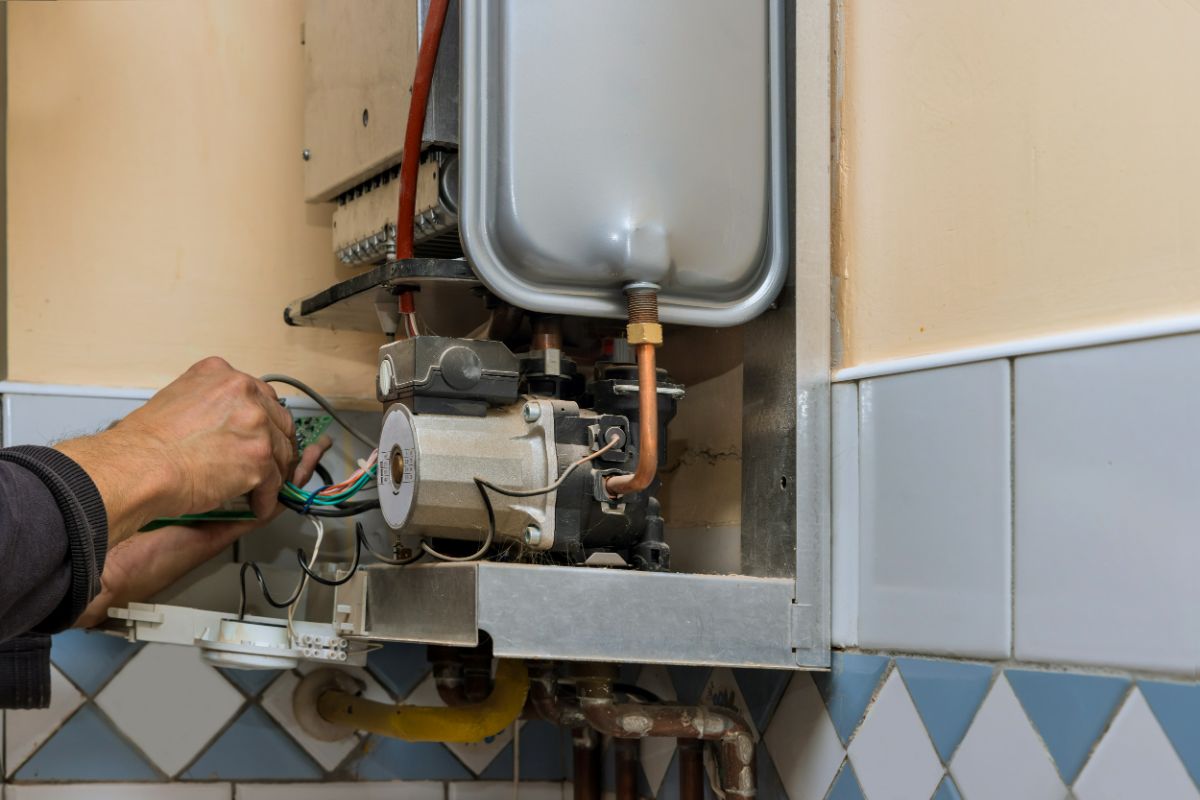We have noticed this post about Tips on Maintaining a Water Heater directly below on the web and felt it made perfect sense to discuss it with you over here.

Hot water is necessary for day-to-day convenience, whether it's for a revitalizing shower or cleaning dishes. To ensure your hot water system runs effectively and lasts longer, routine upkeep is crucial. This write-up gives sensible pointers and insights on how to preserve your home's hot water system to avoid interruptions and costly repair work.
Introduction
Preserving your home's warm water system may appear complicated, however with a couple of basic steps, you can ensure it runs efficiently for many years to find. This overview covers whatever from recognizing your hot water system to DIY maintenance tips and knowing when to call in specialist aid.
Relevance of Keeping Your Warm Water System
Normal upkeep not just prolongs the life expectancy of your hot water system but also guarantees it runs effectively. Ignoring maintenance can result in decreased efficiency, greater power expenses, and even premature failure of the system.
Indicators Your Warm Water System Demands Upkeep
Understanding when your hot water system needs focus can protect against major concerns. Watch out for signs such as irregular water temperature level, unusual noises from the heating system, or rustic water.
Comprehending Your Hot Water System
Before diving right into upkeep tasks, it's helpful to recognize the basic parts of your warm water system. Usually, this consists of the hot water heater itself, pipes, anode poles, and temperature level controls.
Regular Monthly Maintenance Tasks
Normal month-to-month checks can assist catch small problems before they escalate.
Purging the Water Heater
Flushing your hot water heater eliminates sediment build-up, enhancing efficiency and lengthening its life.
Checking and Changing Anode Rods
Anode poles avoid deterioration inside the tank. Inspecting and replacing them when broken is vital.
Examining and Readjusting Temperature Level Settings
Readjusting the temperature setups guarantees optimal performance and safety and security.
DIY Tips for Upkeep
You can execute several upkeep jobs yourself to maintain your hot water system in leading condition.
Checking for Leakages
Routinely examine pipelines and links for leaks, as these can cause water damages and higher expenses.
Checking Stress Alleviation Valves
Evaluating the pressure safety valve guarantees it functions appropriately and avoids too much pressure build-up.
Insulating Pipelines
Shielding hot water pipelines reduces warm loss and can conserve energy.
When to Call a Specialist
While DIY maintenance is useful, some concerns require specialist know-how.
Facility Issues Needing Specialist Help
Examples include major leakages, electrical issues, or if your hot water heater is regularly underperforming.
Regular Specialist Maintenance Advantages
Specialist upkeep can include comprehensive inspections, tune-ups, and making certain compliance with safety standards.
Conclusion
Regular maintenance of your home's hot water system is vital for effectiveness, durability, and expense financial savings. By complying with these ideas and recognizing when to look for specialist aid, you can guarantee a reliable supply of hot water without unforeseen interruptions.
How to Maintain and Troubleshoot Your Heat Pump Water Heater
Know Your Water Heaters Error Codes and How to Clear Them
If your unit is WiFi-enabled, pay attention to the notifications your water heater system sends you and make sure to read and investigate error codes as soon as possible. If your machine has an error code readout on the unit, use your owner’s manual for the hot water heater and find out what the codes mean and how they might be affecting your water heating system. Follow the manufacturer’s directions to assess the issue and clear the code, or call a licensed plumber to take care of that for you.
Change Your Filters Monthly or As-Needed
Heat pump water heaters come equipped with an air filter, usually on the top of the unit where the water heater pulls air into the compressor. Check the filter every few months (put a reminder in your smartphone to make sure you don’t forget!). This will keep peak air flowing into your unit, helping it to work as efficiently as possible and resulting in energy savings over time.
Clean the Condensate Lines
Heat pump water heaters have a condensate drain. As the unit dehumidifies the surrounding area, the moisture has to go somewhere! Make sure to clean this condensate line every year to ensure it doesn’t get backed up with sediment or mold.
To clean the condensate lines, pour a cup of bleach in the access opening of the unit to kill any mold or mildew. Check that the bleach or water flows freely out of the lines, and unclog the lines if needed.
Flush Your Heat Pump Water Heater Annually
Heat pump water heaters are also sometimes referred to as hybrid heat pump water heaters. This is because they contain a backup heating electric heating element inside the tank: the same kind of anode rods used in traditional electric water heaters. That anode rod can become corroded over time from the minerals in your water, and it can begin to decay, break entirely, or heat less efficiently as it becomes corroded. One way to minimize or avoid this corrosion is by flushing your heat pump water heater annually. Just like flushing standard electric or gas water heaters, flushing your water heater is something that any homeowner can DIY if they have a few basic tools and some gumption.
https://www.waterheatersnow.com/blog/how-to-maintain-and-troubleshoot-your-heat-pump-water-heater

Hopefully you liked our piece about How to Maintain Your Water Heater & Prolong its Life. Thanks so much for finding the time to read our piece. Those who liked our blog post plz consider to pass it around. I am grateful for your time. Come back soon.
About This
Comments on “Ensuring Longevity of Your Home's Hot Water System: Maintenance TipsExpert Tips on Caring for Your Home's Hot Water System”